FEATURE | 12 Dec 2023
How climate change affects conflict dynamics in Iraq
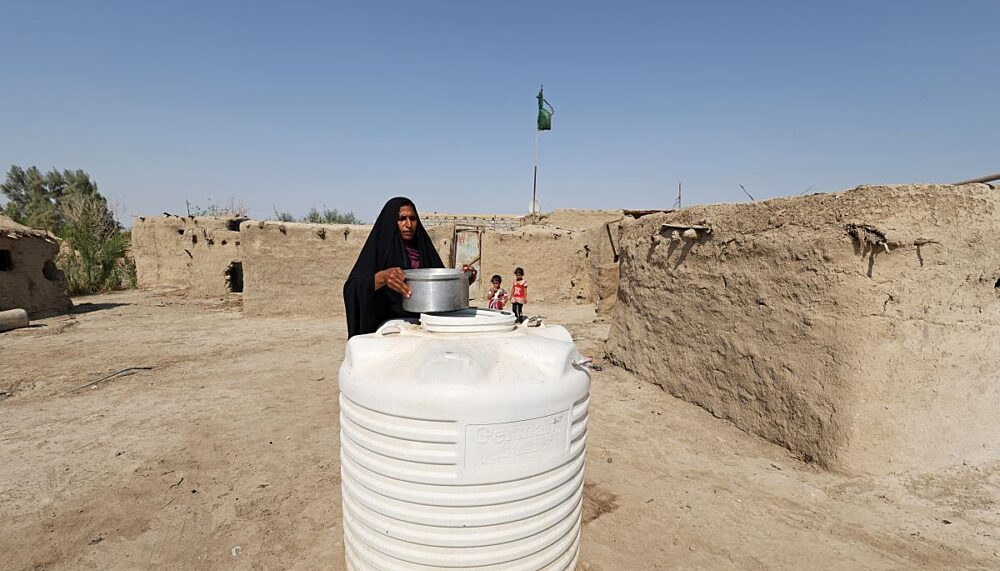
Our new reports shed light on how climate change impacts local conflict in Iraq. Read our key recommendations on how to address climate security risks.
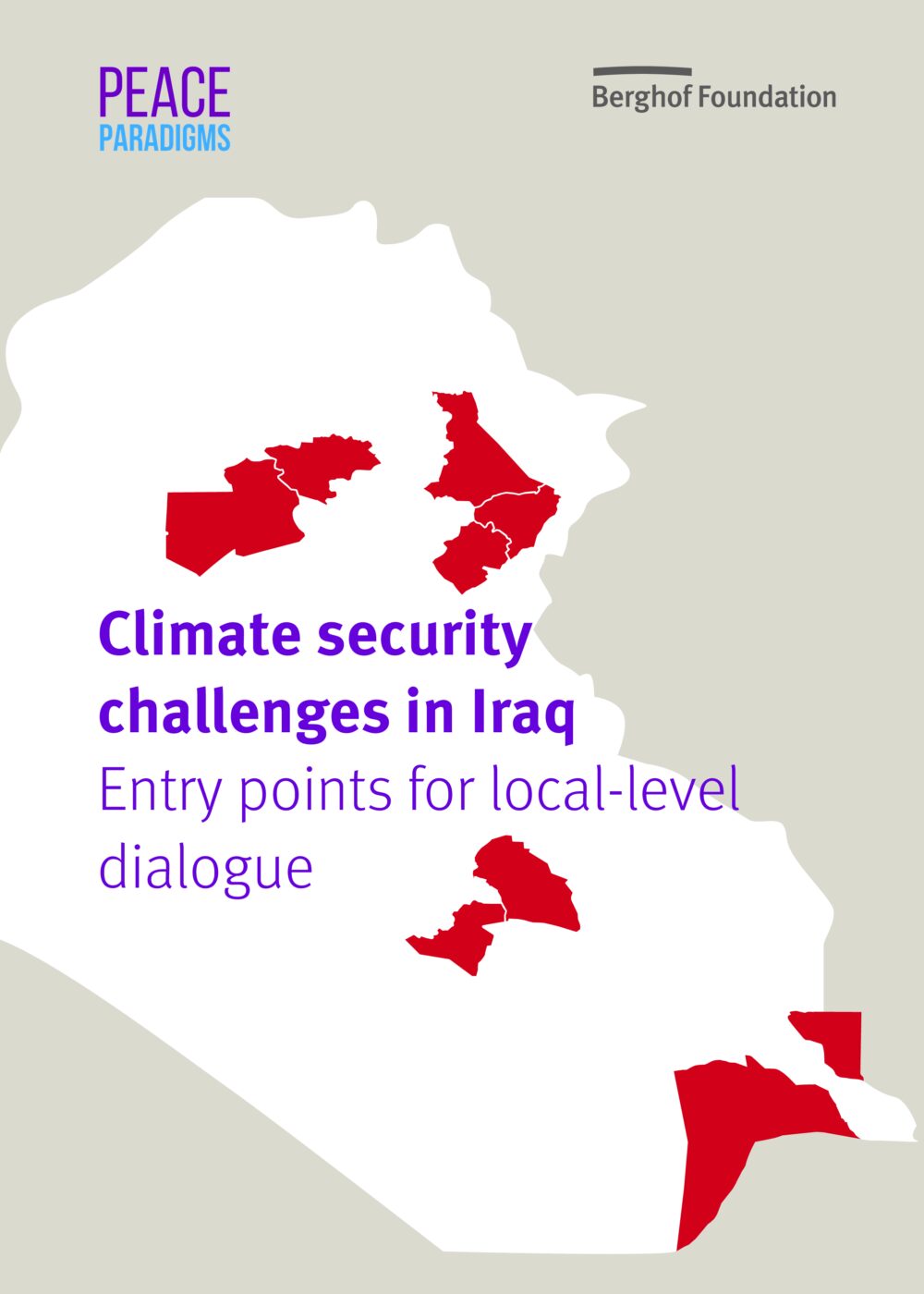
Addressing the multifaceted impacts of climate change and the security risks associated with it requires both immediate and long-term strategies. However, adapting to climate change, mitigating impacts of the climate crisis, and addressing climate security risks become much more challenging in countries scarred by the legacies of war and violent conflicts, such as Iraq.
How do changes in temperature and precipitation alter access to natural resources like land and water in Iraq? What does this mean for already existing conflicts between different communities? And ultimately, what can be done to mitigate local conflicts and build peace in Iraq?
To shed light on these questions our latest two reports analyse case studies from twelve districts in total:
In the latest report we looked at 9 districts, Shatt Al-Arab and Al-Zubair in the Basrah governorate; Afak and Hamza in the Al-Qadisiyah governorate; Baiji in the Salahaldin governorate; Kifri, Kalar and Chamchamal in the Sulaymaniyah governorate and Hawija in the Kirkuk governorate.
In these districts, our researchers interviewed more than 300 individuals to explore how climate change amplifies local conflict dynamics and security risks. The researchers identified climate-related factors that amplify local conflict dynamics and security risks.
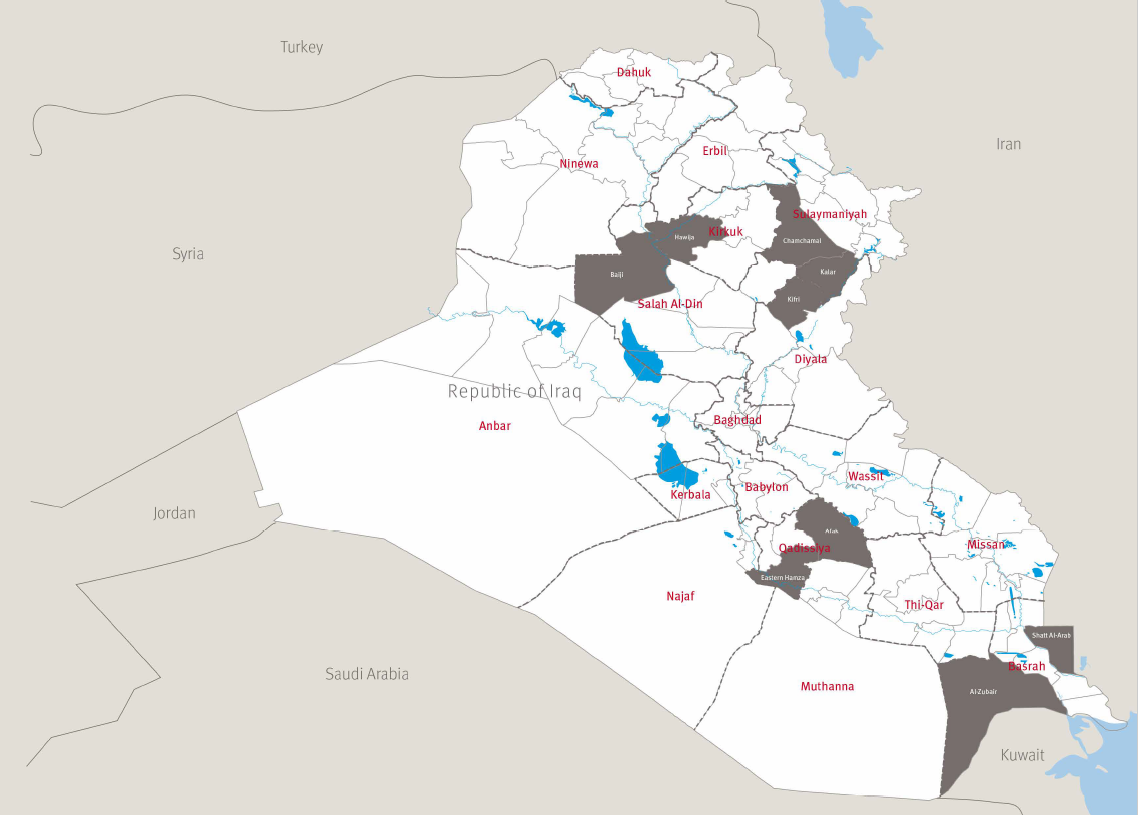
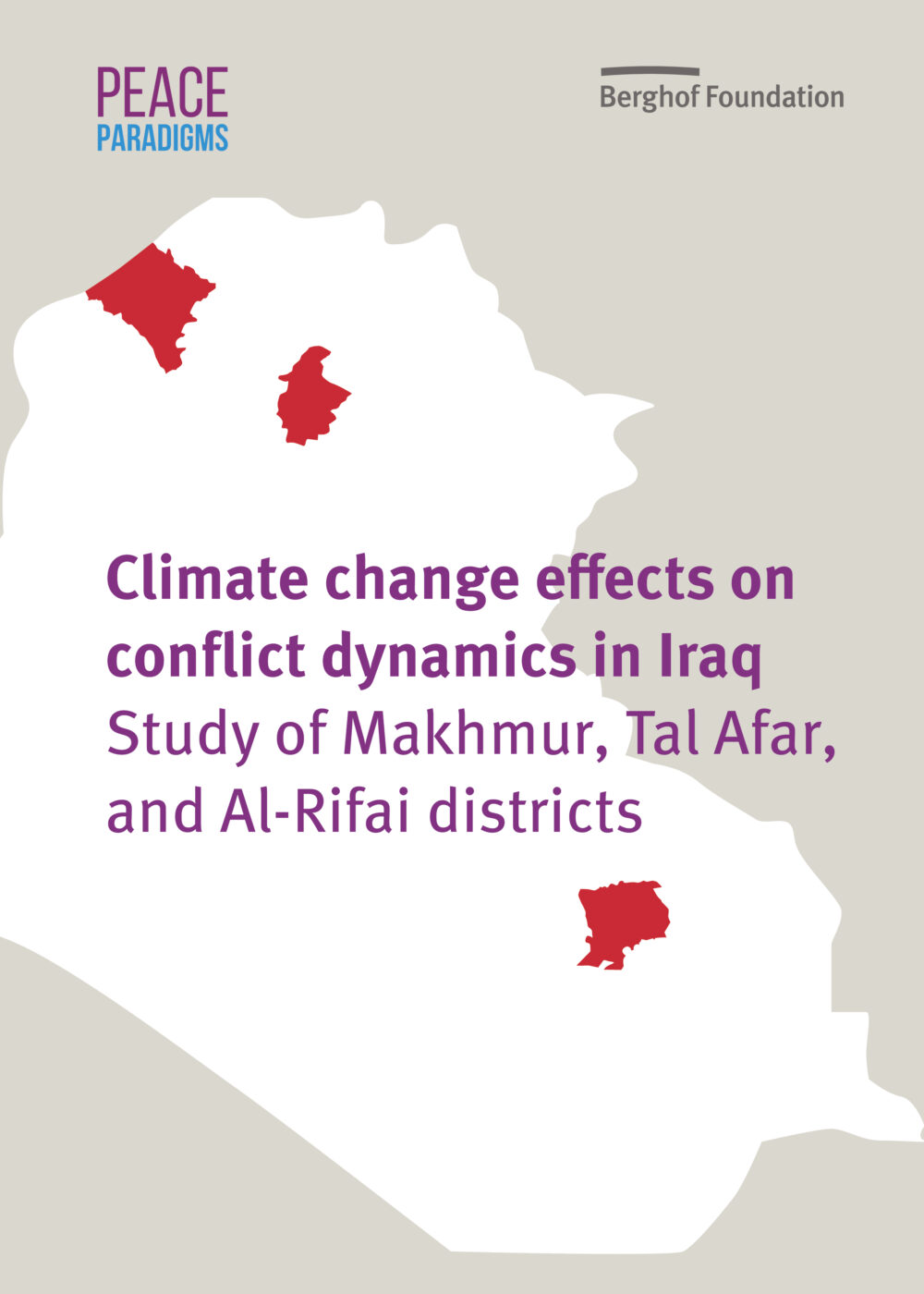
A earlier report focuses on Tal Afar, located in the Nineveh governorate, Makhmur in the Erbil governorate, and Al-Rifai, a constituent of the Dhi-Qar governorate.
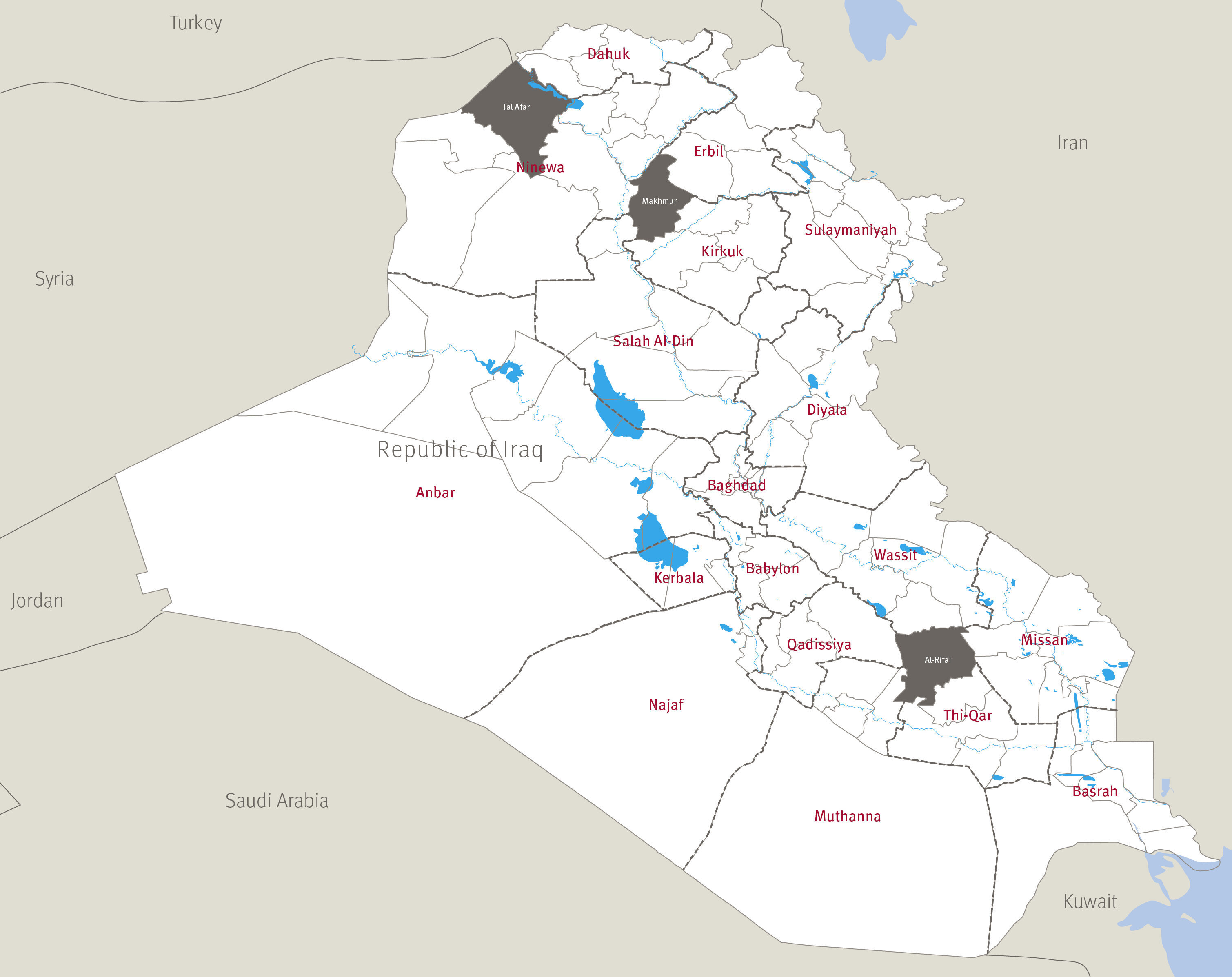
Livelihoods in each of the districts have been profoundly impacted in various ways.
Climate change has an adverse impact on livelihoods in all districts covered by the report. For example, agricultural communities especially in the South of Iraq, have seen a sharp reduction in crop yields and, consequently, income. This has pushed farmers, livestock owners, and herders to abandon their long-standing professions and migrate to more urban areas. As a result, additional pressure is being applied to already faltering local governmental institutions, services and economic markets in urban areas creating tensions and potential for violent conflict between host and IDP communities.
The lower levels of the river, which is the main water source in the district, has caused the migration of many farmers, fishers and animal herders, who are not able to keep their crops and animals alive.
Interview participant from Iraq
Climate change and conflict go hand in hand – therefore, collective action is needed!
While the international community must support Iraq in finding peaceful solutions for climate-induced conflicts, it is equally crucial for local and national Iraqi stakeholders to continue their efforts in addressing climate-related stress factors affecting local communities.
Our reports (in English, Arabic and Kurdish) give key recommendations for finding sustainable and inclusive solutions to climate security risks while emphasising the immediate urgency to support communities in need. The main recommendations include:
Advocate for community-based dialogue solutions to climate security risks
Facilitate inclusive problem-solving dialogue processes that establish connections between key local leaders and relevant provincial and national actors. These processes play a pivotal role in informing or adapting the national strategies being developed at district level.
Promote inclusive mediation efforts to reach balanced agreements on water resources
Support mediation efforts aimed at resolving governance bottlenecks stemming from the disputed territories issue, which currently hinder the implementation of solutions and actions that can help alleviate the effects of the climate crisis.
Enhance the capacity of government entities to manage natural resources
Strengthen the capacity of governmental actors in natural resources management and climate-resilience policy responses, in conjunction with efforts to combat administrative corruption.
You can read more about our findings and key recommendations in our reports.
The reports were implemented by the Berghof Foundation and Peace Paradigms Organisation (PPO) with support from the German Federal Foreign Office and the Robert Bosch Stiftung GmbH.
Editorial note: This article was updated on 18 December 2023 after the publication of the latest report.
Media contact
You can reach the press team at:
+49 (0) 177 7052758
email hidden; JavaScript is required


